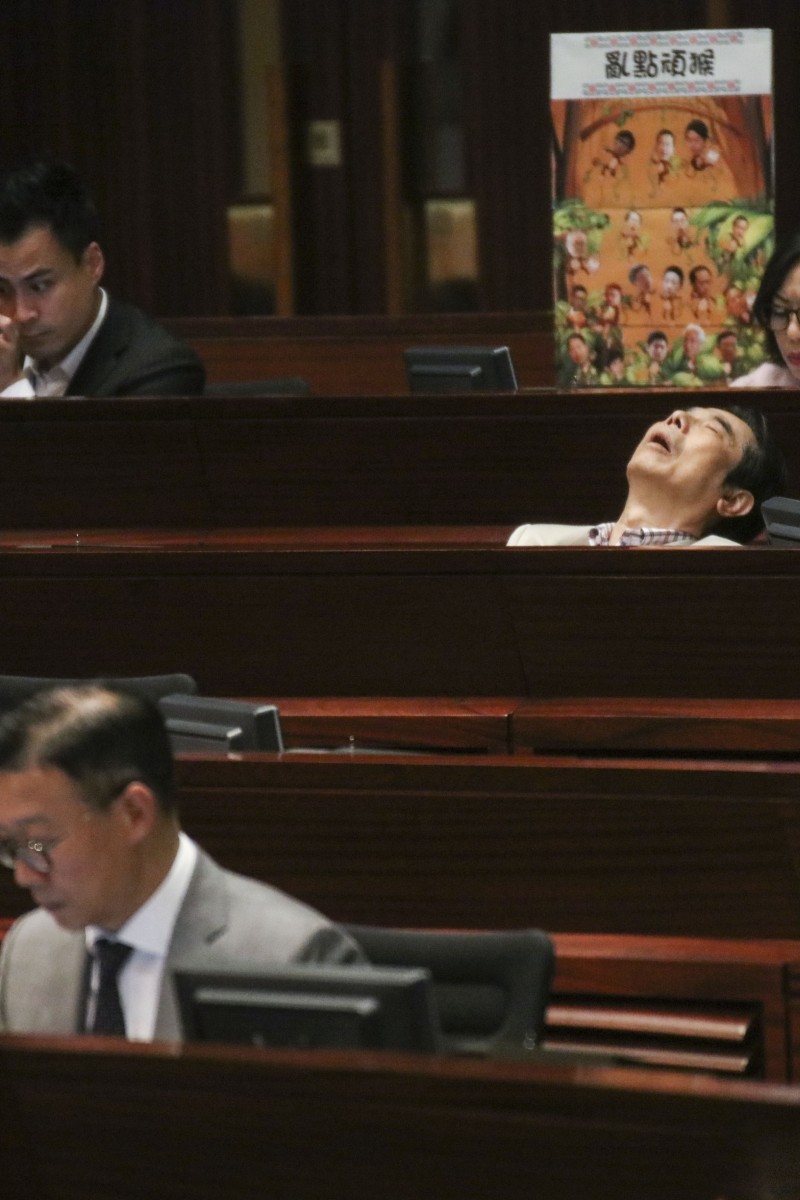
It’s sink or swim for DAB and other loyalist and pro-establishment parties
Instead of resisting changing social attitudes, pro-establishment forces must do all they can to restore public confidence in themselves and the current political system
 With the current political stalemate, there is a danger that pro-establishment lawmakers may be struggling to stay focused on crucial issues that affect the public.
With the current political stalemate, there is a danger that pro-establishment lawmakers may be struggling to stay focused on crucial issues that affect the public. At a time of social upheaval and unrest, the pro-establishment bloc is facing a big problem: they have clearly failed to capture the hearts and minds of the new political generation. While far-right localists and other anti-establishment forces sought to benefit from the post-Occupy frenzy, the Democratic Alliance for the Betterment and Progress of Hong Kong (DAB) and other groups stayed in the past, clinging to the remains of an outdated conservative ideology.
With public confidence just starting to recover from the lows of the Leung administration, Hong Kong needs a new pro-establishment camp that can retain the support of centrist voters and lead the city forward.
The DAB, the flagship loyalist party, saw a four per cent decrease in their popular vote during the last Legislative Council election. Meanwhile, the newly formed localist parties took 19 per cent of the vote in their first election. While the electoral outcome was worrying enough, a 2016 poll by Chinese University revealed that nearly 40 per cent of people in the 15-24 age group were in favour of independence from China. Unless they change their approach, there is a danger of pro-establishment parties disappearing from the city’s political scene.
One major issue is their hard-line stance on matters such as same-sex marriage. At a seminar, the DAB explained that legalising it would lead to human-trafficking, more abortions, and the eventual legalisation of incest despite failing to present any evidence to support such claims. While many teens are willing to accept the arguments for a more restrained approach to electoral reform, branding the LGBT community as sexual deviants does not generate any sympathy for the party.
With the pro-establishment bloc’s current support base typically made up of older voters, they need to take a more critical approach towards the passage of government policy.
As New People’s Party leader Regina Ip Lau Suk-yee rightly pointed out in an interview last year, the public perception of pro-establishment parties as mere “rubber stamps” has made them unappealing to the average voter. Indeed, their failure to speak out over the Wang Chau housing controversy and Link Reit’s never-ending tyranny has made them appear unconcerned with the economic issues that affect most Hongkongers.
Supporting the political status quo does not mean defending the government’s mistakes. If the pro-establishment parties, especially the DAB, hope to gain people’s trust, they need to change their strategy, however painful it may be. It is also one way to restore public confidence in the current political system.
The political stalemate that has delayed crucial legislation and public works needs to end, and the pro-establishment forces must command enough public support for that to happen. The enormous task of modernising the bloc will be a small price to pay for their continued survival in the hostile political climate.